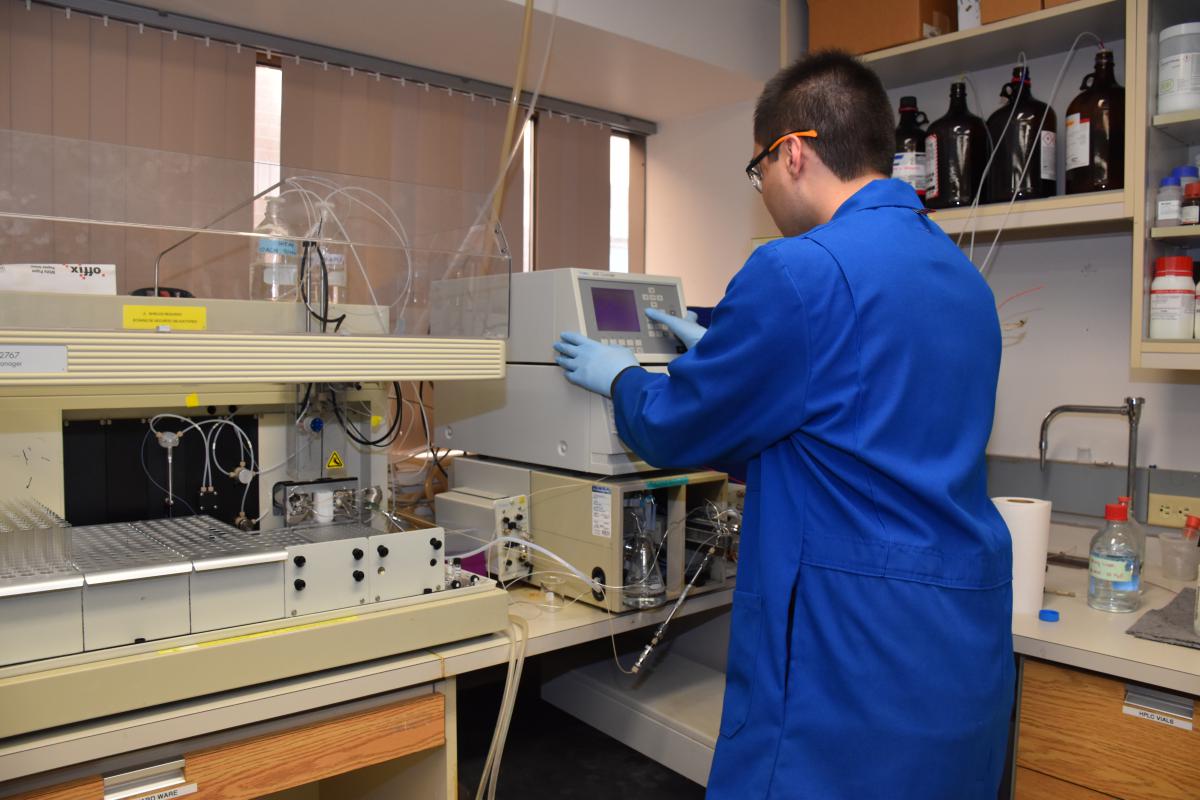

Obesity continues to increase in our population, impacting patients and the health care system. One solution for weight control is an invasive surgery to make the stomach smaller, known as bariatric surgery, which can have serious complications. But what if there was another option?
Ghrelin is known as the “hunger hormone” and plays an important role in the body to help regulate appetite. This hormone encourages appetite, increases food intake and promotes fat storage. It does so by binding to and activating the growth hormone secretagogue receptor (GHSR). High levels of ghrelin and GHSR are linked to many metabolic disorders including obesity and type 2 diabetes.
New research shows that a cyclic peptide, made of small chains of amino acids in a circular pattern, binds to GHSR. This binding stops GHSR from promoting appetite and reduces food intake. This discovery makes the peptide a promising agent for the treatment of metabolic disorders.
One issue is natural peptides make poor drugs because they are easily destroyed by enzymes in the body. This challenge is being addressed through a new study by Geran Bodhi Tu, a graduate student from Schulich School of Medicine & Dentistry, Western University working in Dr. Len Luyt’s lab at Lawson Health Research Institute.

Geran Bodhi Tu is working with Dr. Len Luyt and studying a cyclic peptide that binds to GHSR.
Tu is studying which parts of the peptide are important for preventing GHSR activity, changing the structure to improve stability and developing potential drugs. The hope is to make the new peptide more resistant to being broken down by enzymes and allow it to bind better to the receptor.
“There is a need for alternative therapies and more clinical tools to regulate appetite,” Tu states. “The peptide I am creating does not compete with ghrelin to bind to the receptor. This means it may bind more efficiently than current ghrelin-based agents.”
Drugs made from peptide competitors may help control metabolic disorders, lower the number of patients needing surgery and improve patient outcomes after surgery.
“Higher levels of GHSR have also been linked to several cancers including prostate and ovarian cancer. This makes the receptor very interesting as promising compounds may have outcomes for metabolic disorders and cancer imaging.” says Tu who received a Lawson Internal Research Fund (IRF) Studentship to conduct the study.
Tu will be supervised by Dr. Len Luyt, Lawson Scientist.
The IRF is designed to provide Lawson scientists the opportunity to obtain start-up funds for new projects with the potential to obtain larger funding, be published in a high-impact journal, or provide a clinical benefit to patients. Funding is provided by the clinical departments of London Health Sciences Centre and St. Joseph’s Health Care London, as well as the hospital foundations (London Health Sciences Foundation and St. Joseph’s Health Care Foundation).